Free, Privacy-First Analytics for a Better Web

Everyone with a website needs to know some basic facts about their website: what pages are people visiting? Where in the world are they? What other sites sent traffic to my website?
There are “free” analytics tools out there, but they come at a cost: not money, but your users’ privacy. Today we’re announcing a brand new, privacy-first analytics service that’s open to everyone — even if they're not already a Cloudflare customer. And if you're a Cloudflare customer, we've enhanced our analytics to make them even more powerful than before.
The most important analytics feature: Privacy
The most popular analytics services available were built to help ad-supported sites sell more ads. But, a lot of websites don’t have ads. So if you use those services, you're giving up the privacy of your users in order to understand how what you've put online is performing.
Cloudflare's business has never been built around tracking users or selling advertising. We don’t want to know what you do on the Internet — it’s not our business. So we wanted to build an analytics service that gets back to what really matters for web creators, not necessarily marketers, and to give web creators the Continue reading
Start measuring Web Vitals with Browser Insights
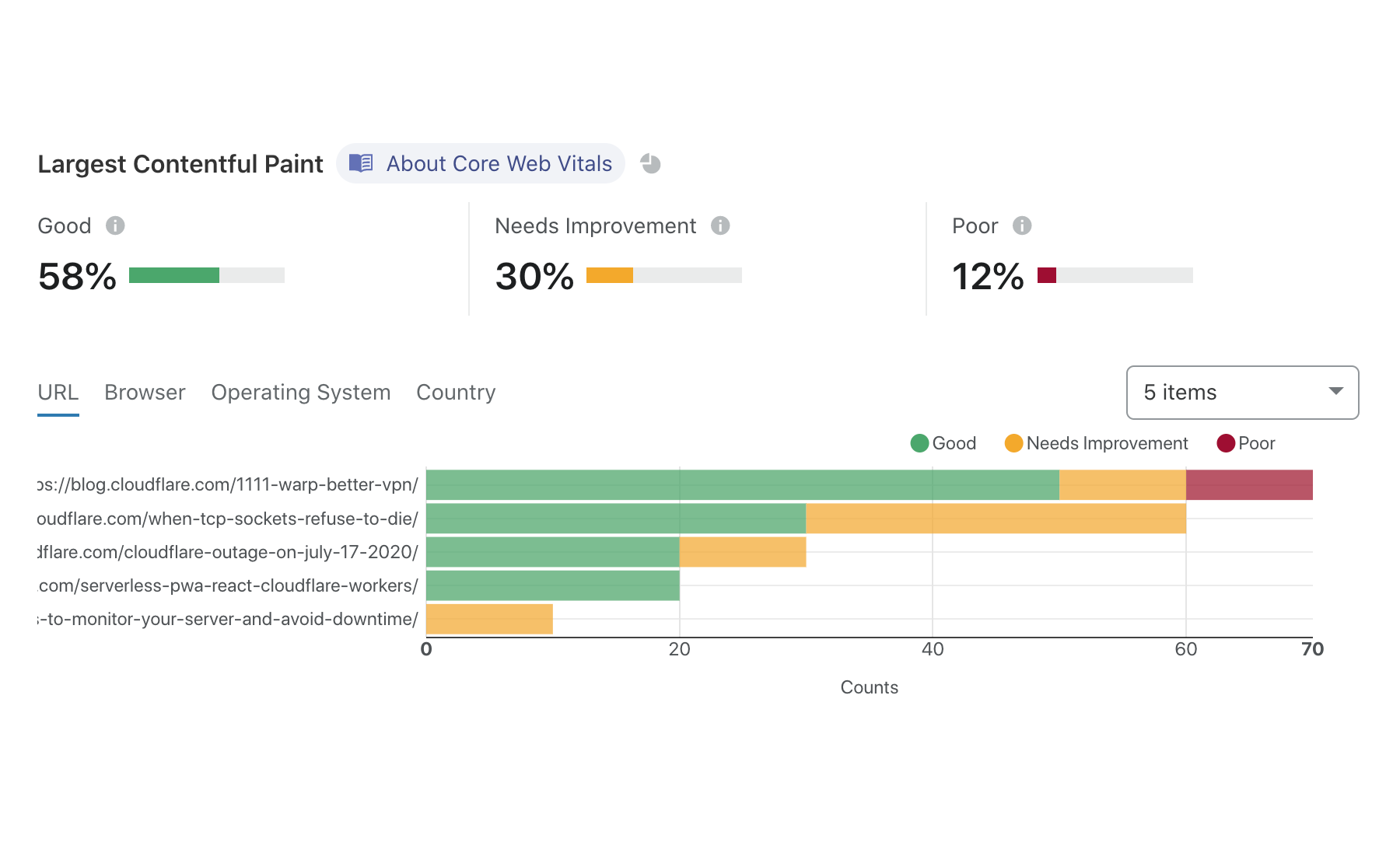
Many of us at Cloudflare obsess about how to make websites faster. But to improve performance, you have to measure it first. Last year we launched Browser Insights to help our customers measure web performance from the perspective of end users.
Today, we're partnering with the Google Chrome team to bring Web Vitals measurements into Browser Insights. Web Vitals are a new set of metrics to help web developers and website owners measure and understand load time, responsiveness, and visual stability. And with Cloudflare’s Browser Insights, they’re easier to measure than ever – and it’s free for anyone to collect data from the whole web.

Why do we need Web Vitals?
When trying to understand performance, it’s tempting to focus on the metrics that are easy to measure — like Time To First Byte (TTFB). While TTFB and similar metrics are important to understand, we’ve learned that they don’t always tell the whole story.
Our partners on the Google Chrome team have tackled this problem by breaking down user experience into three components:
- Loading: How long did it take for content to become available?
- Interactivity: How responsive is the website when you interact with it?
- Visual stability: How Continue reading
Explaining Cloudflare’s ABR Analytics
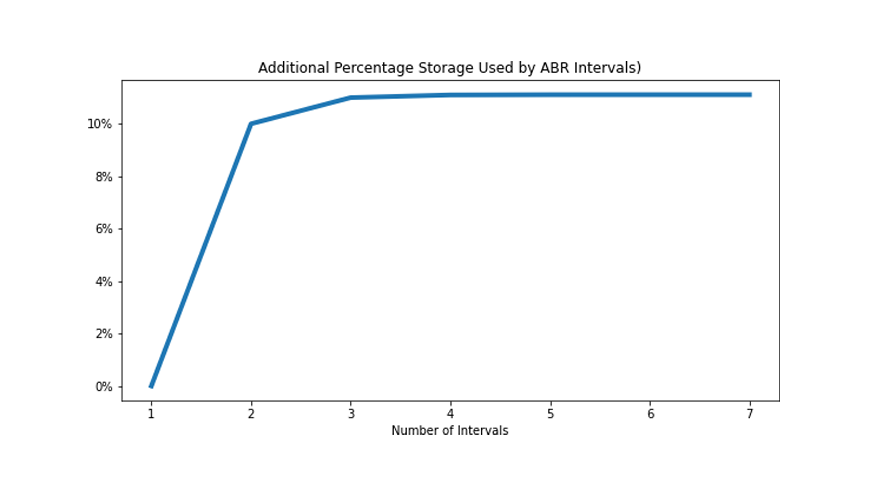
Cloudflare’s analytics products help customers answer questions about their traffic by analyzing the mind-boggling, ever-increasing number of events (HTTP requests, Workers requests, Spectrum events) logged by Cloudflare products every day. The answers to these questions depend on the point of view of the question being asked, and we’ve come up with a way to exploit this fact to improve the quality and responsiveness of our analytics.
Useful Accuracy
Consider the following questions and answers:
What is the length of the coastline of Great Britain? 12.4K km
What is the total world population? 7.8B
How many stars are in the Milky Way? 250B
What is the total volume of the Antarctic ice shelf? 25.4M km3
What is the worldwide production of lentils? 6.3M tonnes
How many HTTP requests hit my site in the last week? 22.6M
Useful answers do not benefit from being overly exact. For large quantities, knowing the correct order of magnitude and a few significant digits gives the most useful answer. At Cloudflare, the difference in traffic between different sites or when a single site is under attack can cross nine orders of magnitude and, in general, all our traffic follows a Continue reading
Birthday Week on Cloudflare TV: Announcing 24 Hours of Live Discussions on the Future of the Internet

This week marks Cloudflare’s 10th birthday, and we’re excited to continue our annual tradition of launching an array of products designed to help give back to the Internet. (Check back here each morning for the latest!)
We also see this milestone as an opportunity to reflect on where the Internet was ten years ago, and where it might be headed over the next decade. So we reached out to some of the people we respect most to see if they’d be interested in joining us for a series of Fireside Chats on Cloudflare TV.
We’ve been blown away by the response, and are thrilled to announce our lineup of speakers, featuring many of the most celebrated names in tech and beyond. Among the highlights: Apple co-founder Steve Wozniak, Zoom CEO Eric Yuan, OpenTable CEO Debby Soo, Stripe co-founder and President John Collison, Former CEO & Executive Chairman, Google // Co-Founder, Schmidt Futures. Eric Schmidt, former McAfee CEO Chris Young, Magic Leap CEO and longtime Microsoft executive Peggy Johnson, former Seal Team 6 Commander Dave Cooper, Project Include CEO Ellen Pao, and so many more. All told, we have over 24 hours Continue reading
Introducing Cron Triggers for Cloudflare Workers


Today the Cloudflare Workers team is thrilled to announce the launch of Cron Triggers. Before now, Workers were triggered purely by incoming HTTP requests but starting today you’ll be able to set a scheduler to run your Worker on a timed interval. This was a highly requested feature that we know a lot of developers will find useful, and we’ve heard your feedback after Serverless Week.

We are excited to offer this feature at no additional cost, and it will be available on both the Workers free tier and the paid tier, now called Workers Bundled. Since it doesn’t matter which city a Cron Trigger routes the Worker through, we are able to maximize Cloudflare’s distributed system and send scheduled jobs to underutilized machinery. Running jobs on these quiet machines is both efficient and cost effective, and we are able to pass those cost savings down to you.
What is a Cron Trigger and how might I use such a feature?
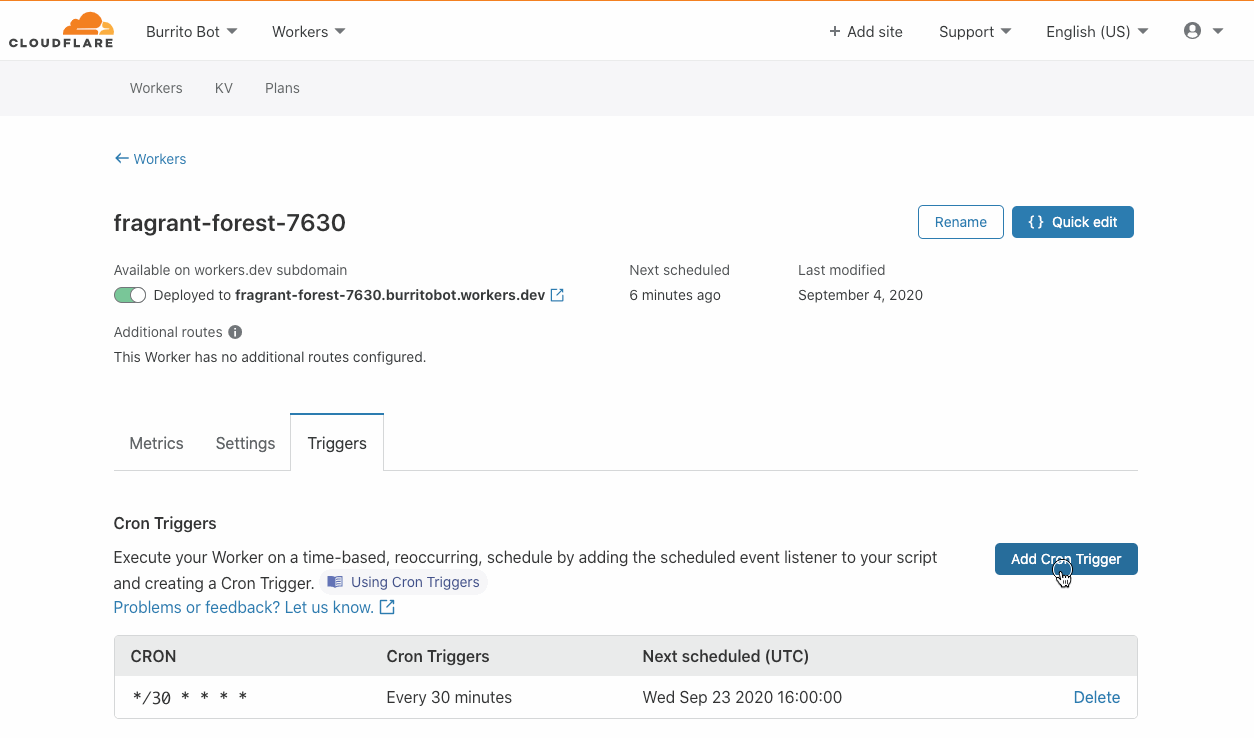
In case you’re not familiar with Unix systems, the cron pattern allows you to schedule jobs to run periodically at fixed intervals or at scheduled times. Cron Triggers in the context of Workers allow users to set time-based invocations Continue reading
Making Time for Cron Triggers: A Look Inside
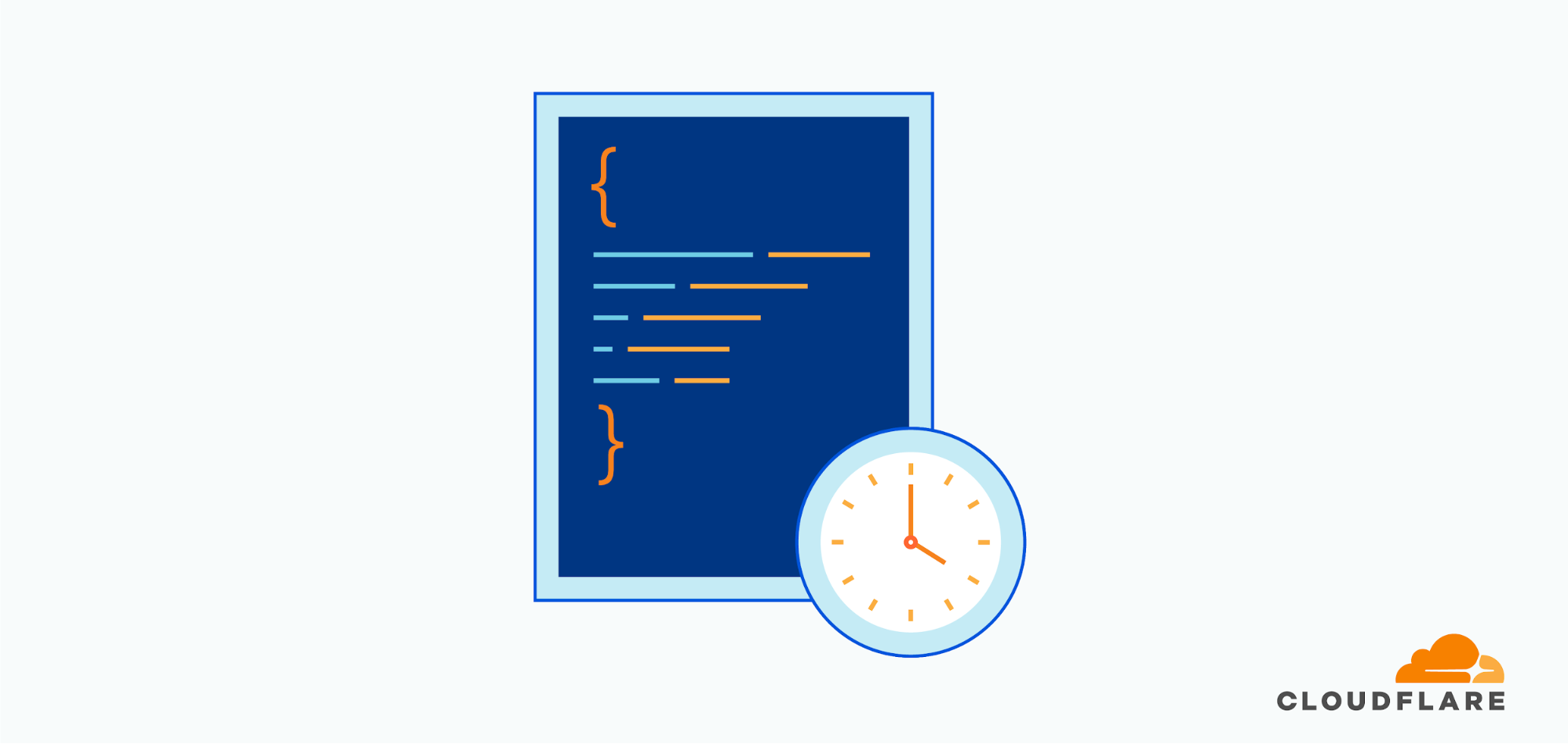

Today, we are excited to launch Cron Triggers to the Cloudflare Workers serverless compute platform. We’ve heard the developer feedback, and we want to give our users the ability to run a given Worker on a scheduled basis. In case you’re not familiar with Unix systems, the cron pattern allows developers to schedule jobs to run at fixed intervals. This pattern is ideal for running any types of periodic jobs like maintenance or calling third party APIs to get up-to-date data. Cron Triggers has been a highly requested feature even inside Cloudflare and we hope that you will find this feature as useful as we have!
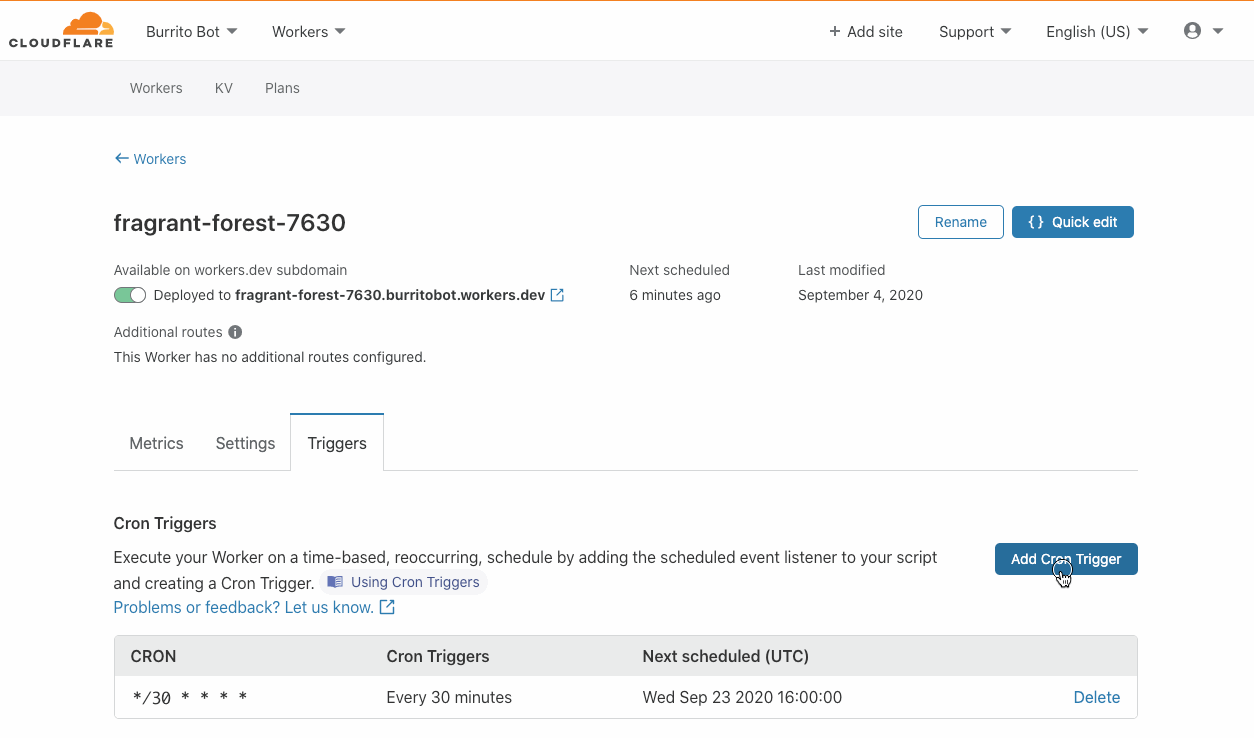
Where are Cron Triggers going to be run?
Cron Triggers are executed from the edge. At Cloudflare, we believe strongly in edge computing and wanted our new feature to get all of the performance and reliability benefits of running on our edge. Thus, we wrote a service in core that is responsible for distributing schedules to a new edge service through Quicksilver which will then trigger the Workers themselves.
What’s happening under the hood?
At a high level, schedules created through our API create records in our database with the information necessary to execute Continue reading
Workers Durable Objects Beta: A New Approach to Stateful Serverless
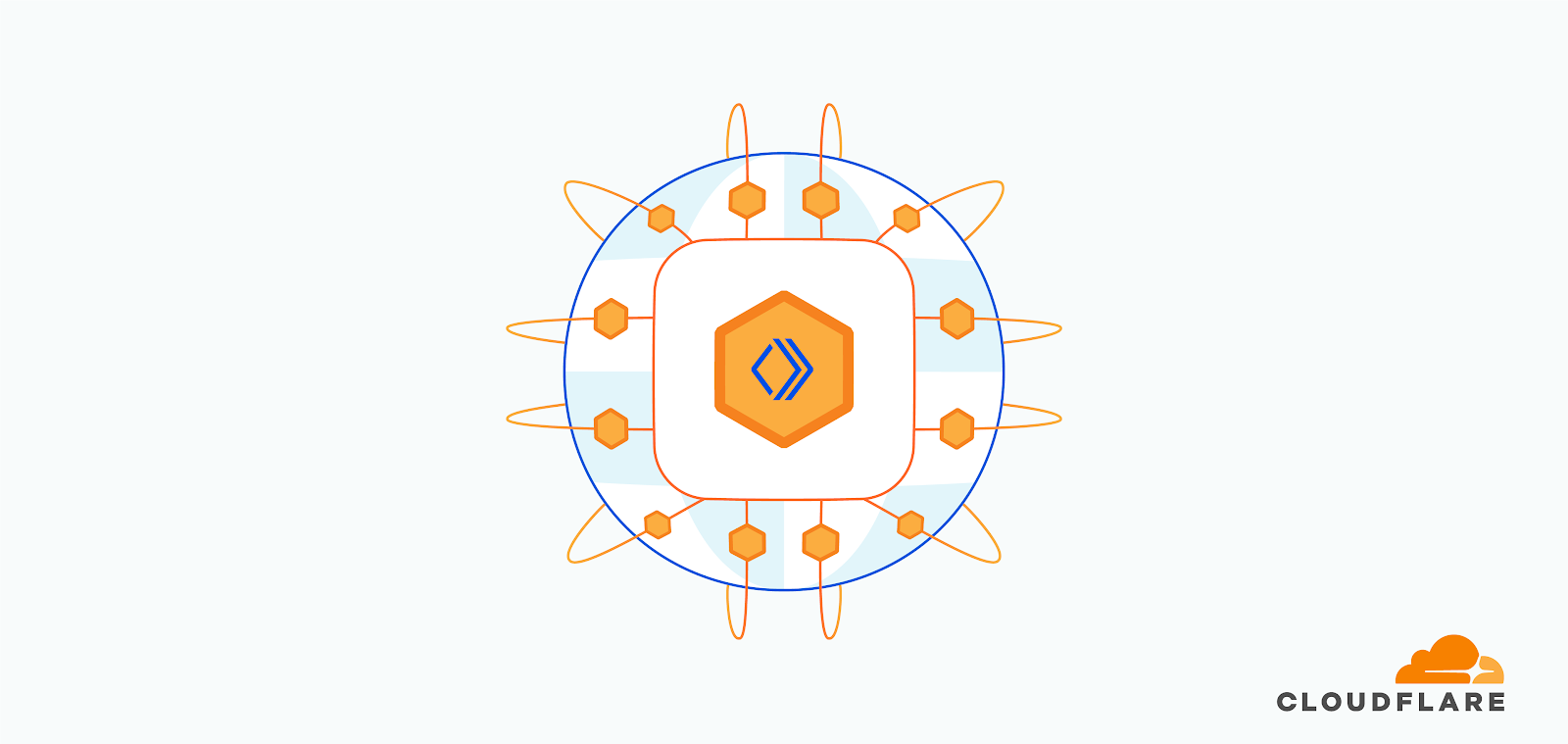
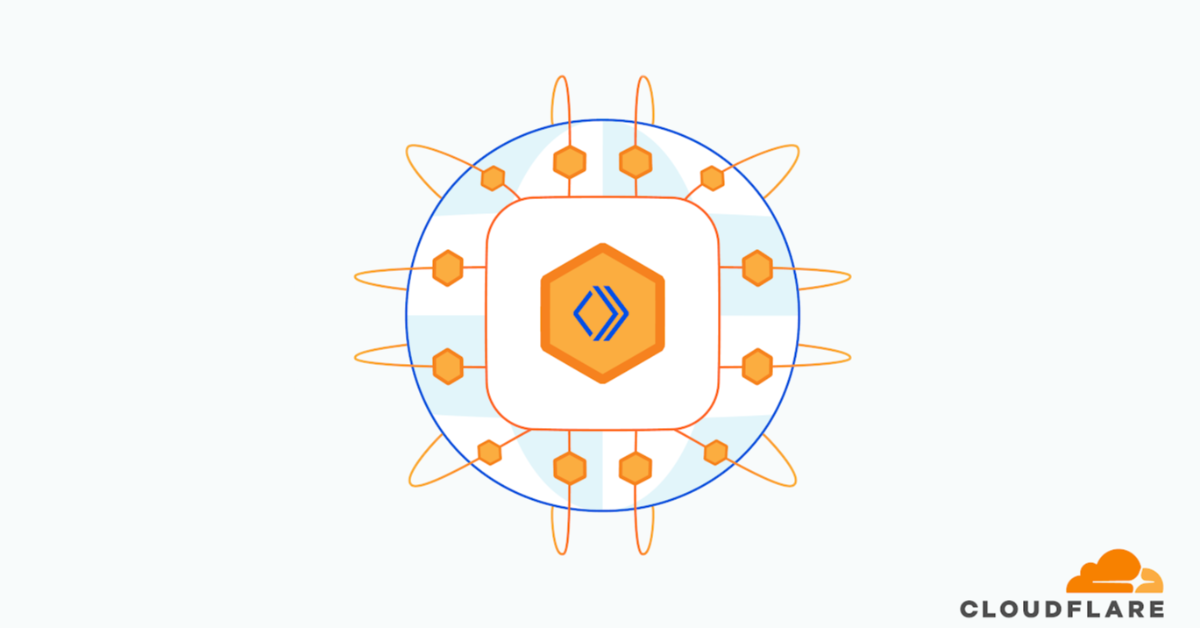
We launched Cloudflare Workers® in 2017 with a radical vision: code running at the network edge could not only improve performance, but also be easier to deploy and cheaper to run than code running in a single datacenter. That vision means Workers is about more than just edge compute -- we're rethinking how applications are built.
Using a "serverless" approach has allowed us to make deploys dead simple, and using isolate technology has allowed us to deliver serverless more cheaply and without the lengthy cold starts that hold back other providers. We added easy-to-use eventually-consistent edge storage to the platform with Workers KV.
But up until today, it hasn't been possible to manage state with strong consistency, or to coordinate in real time between multiple clients, entirely on the edge. Thus, these parts of your application still had to be hosted elsewhere.
Durable Objects provide a truly serverless approach to storage and state: consistent, low-latency, distributed, yet effortless to maintain and scale. They also provide an easy way to coordinate between clients, whether it be users in a particular chat room, editors of a particular document, or IoT devices in a particular smart home. Durable Objects are the missing piece Continue reading
A letter from Cloudflare’s founders (2020)

To our stakeholders:
Cloudflare launched on September 27, 2010 — 10 years ago today. Stopping to look back over the last 10 years is challenging in some ways because so much of who we are has changed radically. A decade ago when we launched we had a few thousand websites using us, our tiny office was above a nail salon in Palo Alto, our team could be counted on less than two hands, and our data center locations on one hand.

As the company grew, it would have been easy to stick with accelerating and protecting developers and small business websites and not see the broader picture. But, as this year has shown with crystal clarity, we all depend on the Internet for many aspects of our lives: for access to public information and services, to getting work done, for staying in touch with friends and loved ones, and, increasingly, for educating our children, ordering groceries, learning the latest dance moves, and so many other things. The Internet underpins much of what we do every day, and Cloudflare’s mission to help build a better Internet seems more Continue reading
Welcome to Birthday Week 2020

Each year we celebrate our launch on September 27, 2010 with a week of product announcements. We call this Birthday Week, but rather than receiving gifts, we give them away. This year is no different, except that it is… Cloudflare is 10 years old.
Before looking forward to the coming week, let’s take a look back at announcements from previous Birthday Weeks.

A year into Cloudflare’s life (in 2011) we launched automatic support for IPv6. This was the first of a long line of announcements that support our goal of making available to everyone the latest technologies. If you’ve been following Cloudflare’s growth you’ll know those include SPDY/HTTP/2, TLS 1.3, QUIC/HTTP/3, DoH and DoT, WebP, … At two years old we celebrated with a timeline of our first two years and the fact that we’d reached 500,000 domains using the service. A year later that number had tripled.

In 2014 we released Universal SSL and gave all our customers SSL certificates. In one go we massively increased the size of the encrypted web and made it free and simple to go from http:// to https://. Other HTTPS related features we’ve Continue reading
A Year Later: Reflections on the ANZ Security Landscape


It’s been one year since I joined Cloudflare as Head of Australia and New Zealand. While it has been a great year for our ANZ operations, it is hard to stop thinking about the elephant in the room, especially as I’m writing this blog from my home in the middle of Melbourne’s lockdown.
The pandemic has not only disrupted our daily lives, but has also caused a massive shift to remote work for many of us. As a result, security teams lost visibility into office network traffic, their employees moved to unsupervised WiFi networks with new video conferencing technology, and their IT teams found that their out-dated VPN platforms could not handle all the traffic of remote employees. While many organisations were already moving to cloud-based applications, this year has exacerbated the need for greater security posture. Our team has been even more humbled by our mission to help build a better Internet and help organisations face the increased security threats COVID-19 has triggered. With that in mind, I’d like to take a look back at the milestones of the past year.
First, I’d like to recognise how strong and resilient our people have been in the past year. It Continue reading
Building even faster interpreters in Rust

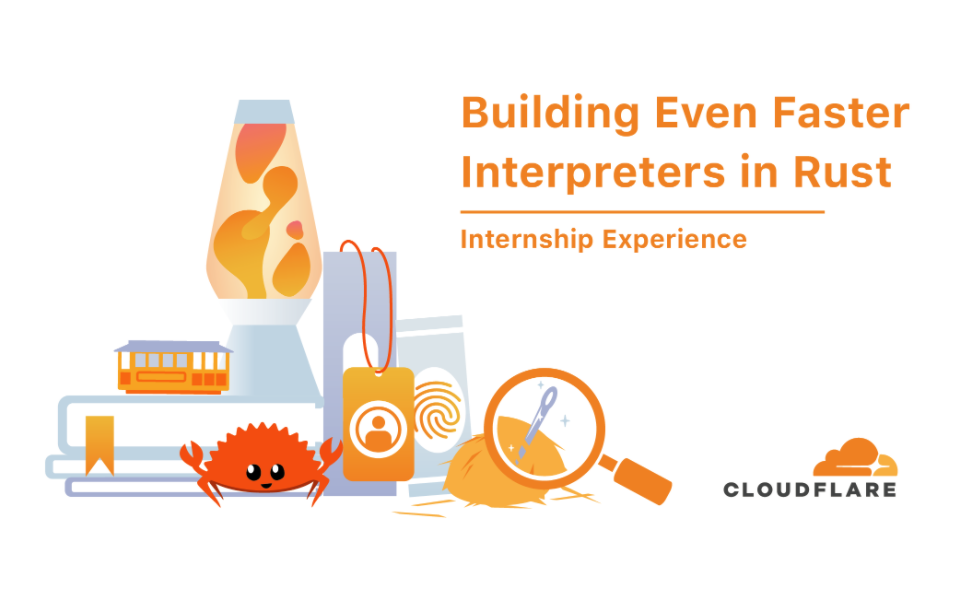
At Cloudflare, we’re constantly working on improving the performance of our edge — and that was exactly what my internship this summer entailed. I’m excited to share some improvements we’ve made to our popular Firewall Rules product over the past few months.
Firewall Rules lets customers filter the traffic hitting their site. It’s built using our engine, Wirefilter, which takes powerful boolean expressions written by customers and matches incoming requests against them. Customers can then choose how to respond to traffic which matches these rules. We will discuss some in-depth optimizations we have recently made to Wirefilter, so you may wish to get familiar with how it works if you haven’t already.
Minimizing CPU usage
As a new member of the Firewall team, I quickly learned that performance is important — even in our security products. We look for opportunities to make our customers’ Internet properties faster where it’s safe to do so, maximizing both security and performance.
Our engine is already heavily used, powering all of Firewall Rules. But we have bigger plans. More and more products like our Web Application Firewall (WAF) will be running behind our Wirefilter-based engine, and it will become responsible for eating up a Continue reading
Raking the floods: my intern project using eBPF

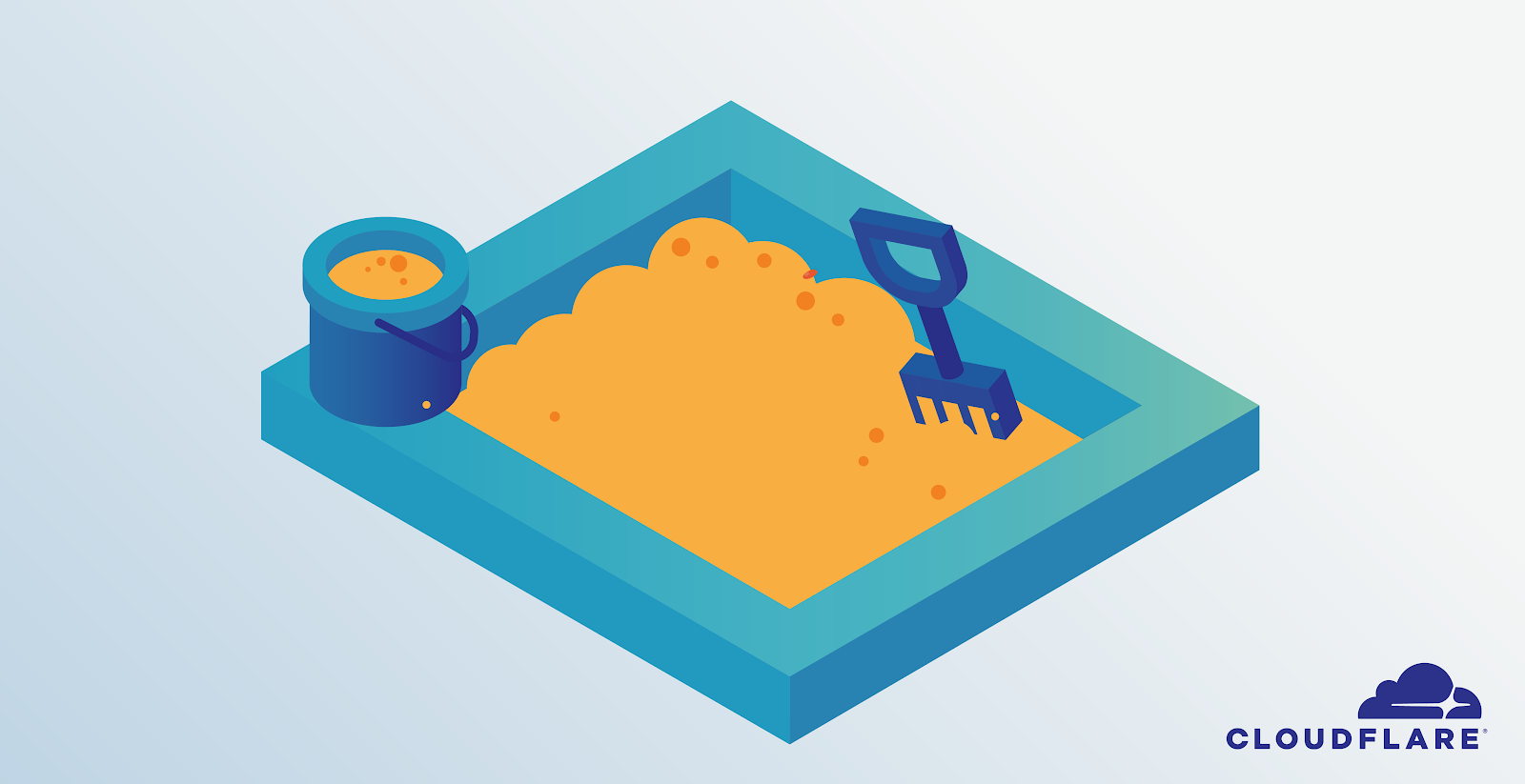
Cloudflare’s globally distributed network is not just designed to protect HTTP services but any kind of TCP or UDP traffic that passes through our edge. To this end, we’ve built a number of sophisticated DDoS mitigation systems, such as Gatebot, which analyze world-wide traffic patterns. However, we’ve always employed defense-in-depth: in addition to global protection systems we also use off-the shelf mechanisms such as TCP SYN-cookies, which protect individual servers locally from the very common SYN-flood. But there’s a catch: such a mechanism does not exist for UDP. UDP is a connectionless protocol and does not have similar context around packets, especially considering that Cloudflare powers services such as Spectrum which are agnostic to the upper layer protocol (DNS, NTP, …), so my 2020 intern class project was to come up with a different approach.
Protecting UDP services
First of all, let's discuss what it actually means to provide protection to UDP services. We want to ensure that an attacker cannot drown out legitimate traffic. To achieve this we want to identify floods and limit them while leaving legitimate traffic untouched.
The idea to mitigate such attacks is straight forward: first identify a group of packets that is Continue reading
Cloudflare’s Always Online and the Internet Archive Team Up to Fight Origin Errors

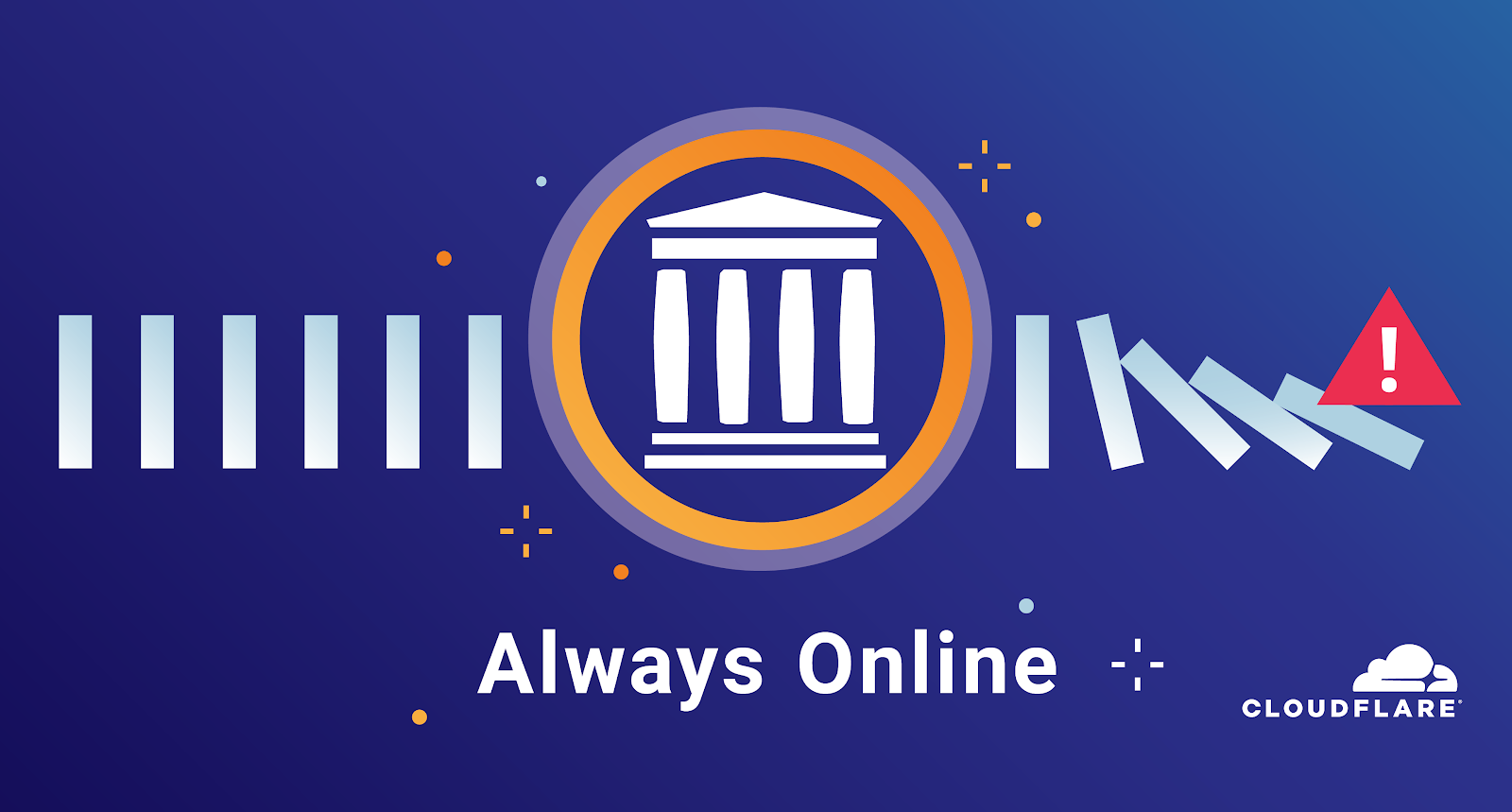
Every day, all across the Internet, something bad but entirely normal happens: thousands of origin servers go down, resulting in connection errors and frustrated users. Cloudflare’s users collectively spend over four and a half years each day waiting for unreachable origin servers to respond with error messages. But visitors don’t want to see error pages, they want to see content!
Today is exciting for all those who want the Internet to be stronger, more resilient, and have important redundancies: Cloudflare is pleased to announce a partnership with the Internet Archive to bring new functionality to our Always Online service.
Always Online serves as insurance for our customers’ websites. Should a customer’s origin go offline, timeout, or otherwise break, Always Online is there to step in and serve archived copies of webpages to visitors. The Internet Archive is a nonprofit organization that runs the Wayback Machine, a service which saves snapshots of billions of websites across the Internet. By partnering with the Internet Archive, Cloudflare is able to seamlessly deliver responses for unreachable websites from the Internet Archive, while the Internet Archive can continue their mission of archiving the web to provide access to all knowledge.
Enabling Always Online in the Continue reading
Moobot vs. Gatebot: Cloudflare Automatically Blocks Botnet DDoS Attack Topping At 654 Gbps

On July 3, Cloudflare’s global DDoS protection system, Gatebot, automatically detected and mitigated a UDP-based DDoS attack that peaked at 654 Gbps. The attack was part of a ten-day multi-vector DDoS campaign targeting a Magic Transit customer and was mitigated without any human intervention. The DDoS campaign is believed to have been generated by Moobot, a Mirai-based botnet. No downtime, service degradation, or false positives were reported by the customer.

Over those ten days, our systems automatically detected and mitigated over 5,000 DDoS attacks against this one customer, mainly UDP floods, SYN floods, ACK floods, and GRE floods. The largest DDoS attack was a UDP flood and lasted a mere 2 minutes. This attack targeted only one IP address but hit multiple ports. The attack originated from 18,705 unique IP addresses, each believed to be a Moobot-infected IoT device.

The attack was observed in Cloudflare’s data centers in 100 countries around the world. Approximately 89% of the attack traffic originated from just 10 countries with the US leading at 41%, followed by South Korea and Japan in second place (12% each), Continue reading
Secondary DNS – Deep Dive
How Does Secondary DNS Work?
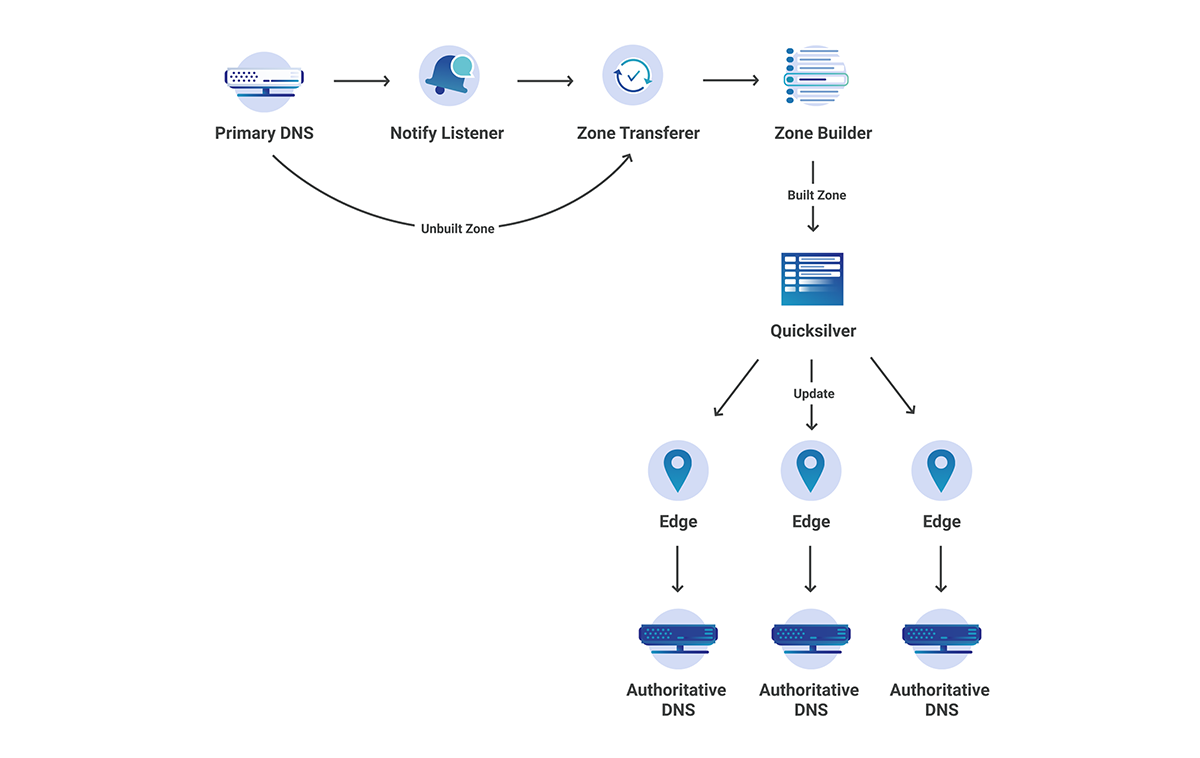
If you already understand how Secondary DNS works, please feel free to skip this section. It does not provide any Cloudflare-specific information.
Secondary DNS has many use cases across the Internet; however, traditionally, it was used as a synchronized backup for when the primary DNS server was unable to respond to queries. A more modern approach involves focusing on redundancy across many different nameservers, which in many cases broadcast the same anycasted IP address.
Secondary DNS involves the unidirectional transfer of DNS zones from the primary to the Secondary DNS server(s). One primary can have any number of Secondary DNS servers that it must communicate with in order to keep track of any zone updates. A zone update is considered a change in the contents of a zone, which ultimately leads to a Start of Authority (SOA) serial number increase. The zone’s SOA serial is one of the key elements of Secondary DNS; it is how primary and secondary servers synchronize zones. Below is an example of what an SOA record might look like during a dig query.
example.com 3600 IN SOA ashley.ns.cloudflare.com. dns.cloudflare.com.
2034097105 // Serial
10000 // Continue readingWhat Happens When The Whole World Goes Remote? Not To Worry, We Were Built For This


In March, governments all over the world issued stay-at-home orders, causing a mass migration to teleworking. Alongside many of our partners, Cloudflare launched free products and services supported by onboarding sessions to help our clients secure and accelerate their remote work environments. Over the past few months, a dedicated team of specialists met with hundreds of organizations - from tiny startups, to massive corporations - to help them extend better security and performance to a suddenly-remote workforce.
Most companies we heard from had a VPN in place, but it wasn’t set up to accommodate a full-on remote work environment. When employees began working from home, they found that the VPN was getting overloaded with requests, causing performance lags.
While many organizations had bought more VPN licenses to allow employees to connect to their tools, they found that just having licenses wasn’t enough: they needed to reduce the amount of traffic flowing through their VPN by taking select applications off of the private network.
We Were Built For This
My name is Dina and I am a Customer Success Manager (CSM) in our San Francisco office. I am responsible for ensuring the success of Cloudflare’s Enterprise customers and managing all of Continue reading
Add Watermarks to your Cloudflare Stream Video Uploads


Since the launch of Cloudflare Stream, our customers have been asking for a programmatic way to add watermarks to their videos. We built the Watermarks API to support a wide range of use cases: from customers who simply want to tell Stream “can you put this watermark image to the top right of my video?” to customers with more detailed asks such as “can you put this watermark image in a way it doesn’t take up more than 10% of the original video and with 20% opacity?” All that and more is now available at no additional cost through the Watermarks API.
What is Cloudflare Stream?
Cloudflare Stream provides out-of-the-box video infrastructure so developers can bring their app ideas to market faster. While building a video streaming app, developers must ask themselves questions like
- “Where do we store the videos affordably?”
- “How do we encode the videos to support users with varying Internet speeds?”
- “How do we maintain our video pipeline in the long term?”
Cloudflare Stream is a single product that handles video encoding, storage, delivery and presentation (with the Stream Player.) Stream lets developers launch their ideas Continue reading
Migrating cdnjs to serverless with Workers KV

Cloudflare powers cdnjs, an open-source project that accelerates websites by delivering popular JavaScript libraries and resources via Cloudflare’s network. Since our major update in December, we focused on remodelling cdnjs for scalability and resilience. Today, we are excited to announce how Cloudflare delivers cdnjs—a migration to a serverless infrastructure using Cloudflare Workers and its distributed key-value store Workers KV!
What is cdnjs?

For those unfamiliar, cdnjs is an acronym describing a Content Delivery Network (CDN) for JavaScript (JS). A CDN simply refers to a geographically distributed network of servers that provide Internet content, whether it is memes, cat videos, or HTML pages. In our case, the CDN refers to Cloudflare’s ever expanding network of over 200 globally distributed data centers.
And here’s why this is relevant to you: it makes page load times lightning-fast. Virtually every website you visit needs to fetch JS libraries in order to load, including this one. Let’s say you visit a Sydney-based website that contains a local file from jQuery, a popular library found in 76.2% of websites. If you are located in New York, you may notice a delay, as it can easily exceed 300ms to fetch the file—not to mention Continue reading
Unimog – Cloudflare’s edge load balancer

As the scale of Cloudflare’s edge network has grown, we sometimes reach the limits of parts of our architecture. About two years ago we realized that our existing solution for spreading load within our data centers could no longer meet our needs. We embarked on a project to deploy a Layer 4 Load Balancer, internally called Unimog, to improve the reliability and operational efficiency of our edge network. Unimog has now been deployed in production for over a year.
This post explains the problems Unimog solves and how it works. Unimog builds on techniques used in other Layer 4 Load Balancers, but there are many details of its implementation that are tailored to the needs of our edge network.

The role of Unimog in our edge network
Cloudflare operates an anycast network, meaning that our data centers in 200+ cities around the world serve the same IP addresses. For example, our own cloudflare.com website uses Cloudflare services, and one of its IP addresses is 104.17.175.85. All of our data centers will accept connections to that address and respond to HTTP requests. By the magic of Internet routing, when you visit cloudflare.com and your Continue reading
Rendering React on the Edge with Flareact and Cloudflare Workers
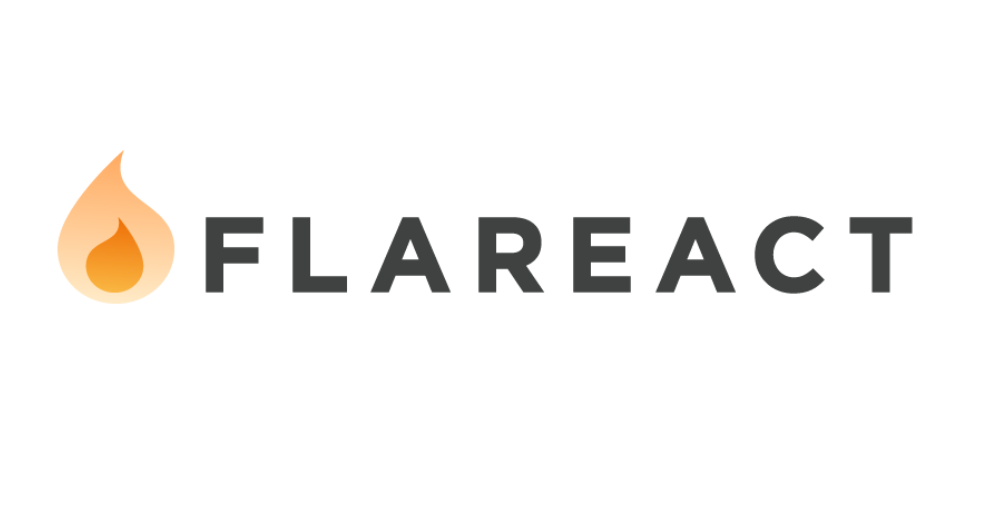
The following is a guest post from Josh Larson, Engineer at Vox Media.
Imagine you’re the maintainer of a high-traffic media website, and your DNS is already hosted on Cloudflare.
Page speed is critical. You need to get content to your audience as quickly as possible on every device. You also need to render ads in a speedy way to maintain a good user experience and make money to support your journalism.
One solution would be to render your site statically and cache it at the edge. This would help ensure you have top-notch delivery speed because you don’t need a server to return a response. However, your site has decades worth of content. If you wanted to make even a small change to the site design, you would need to regenerate every single page during your next deploy. This would take ages.
Another issue is that your site would be static — and future updates to content or new articles would not be available until you deploy again.
That’s not going to work.
Another solution would be to render each page dynamically on your server. This ensures you can return a dynamic response for new or updated articles.